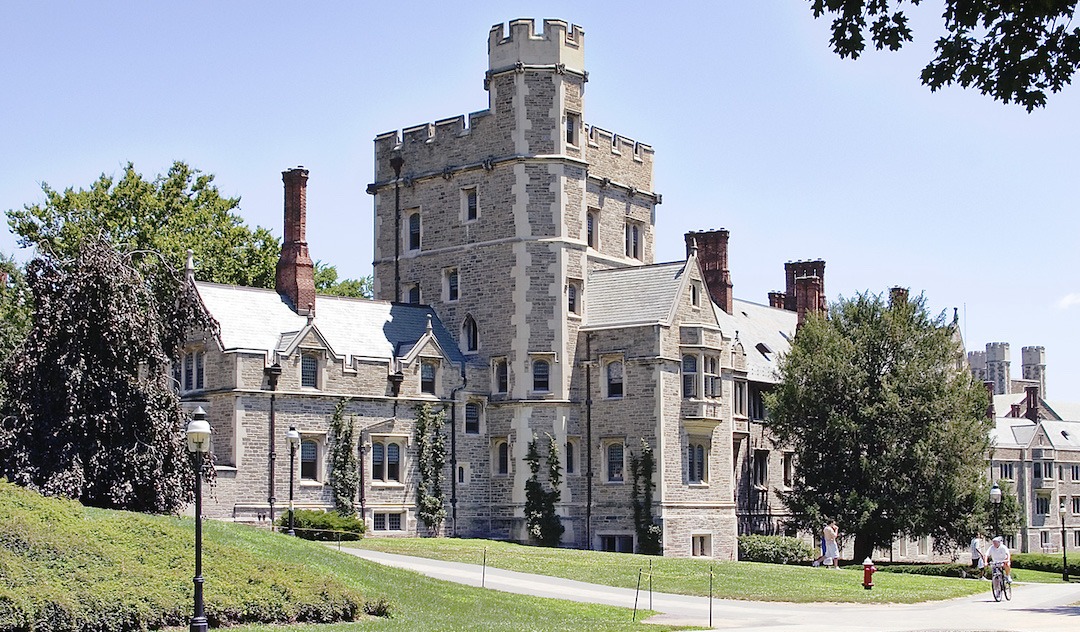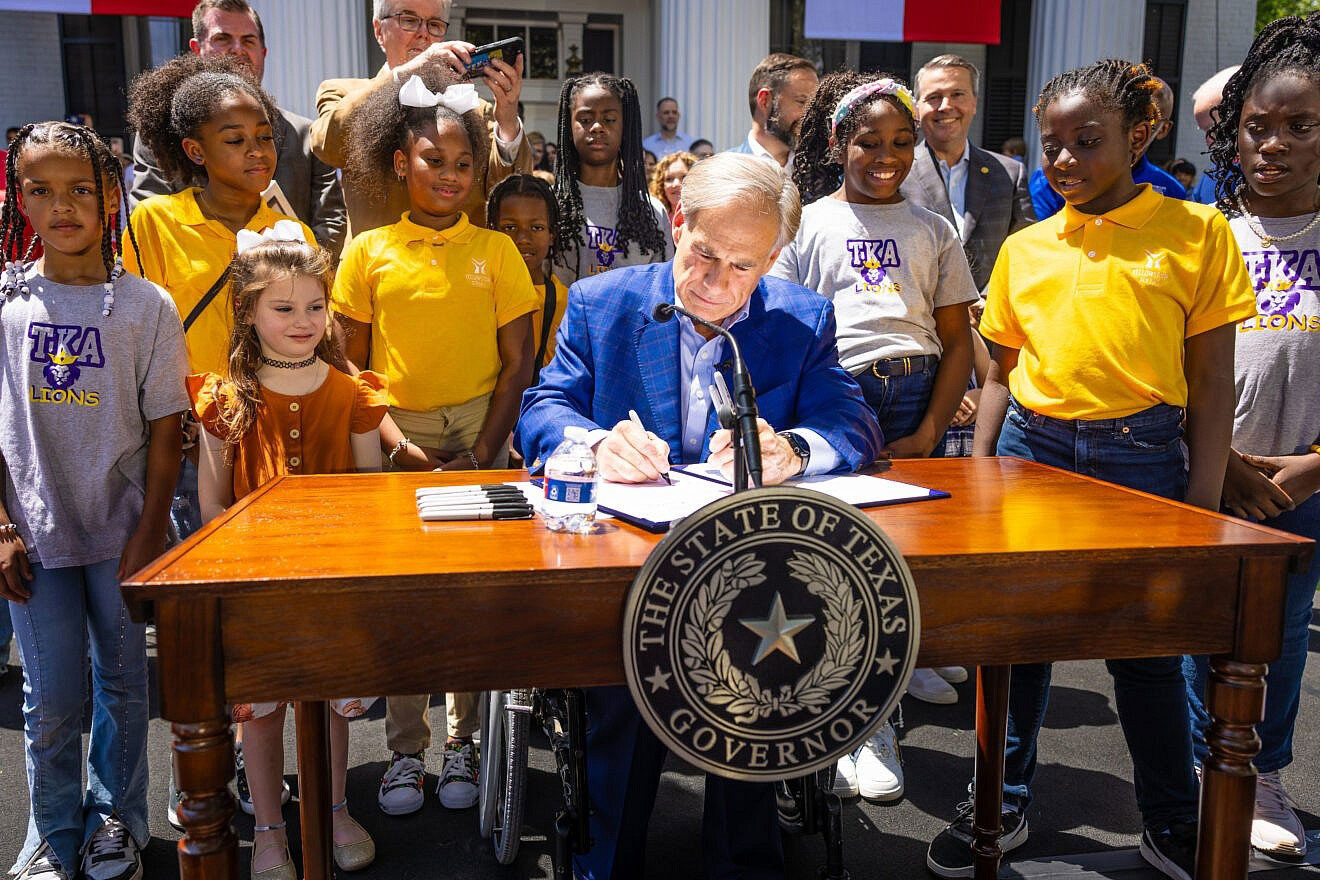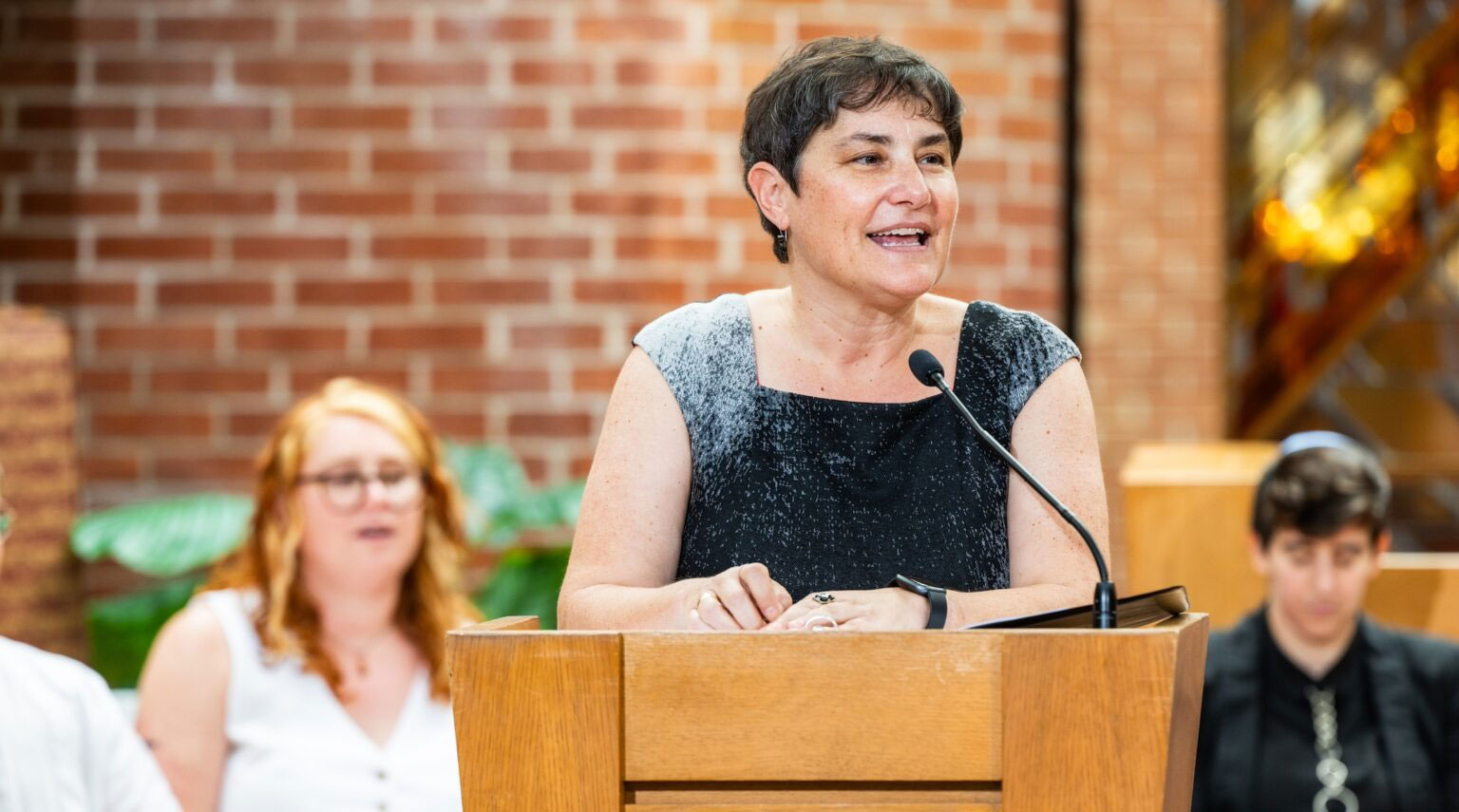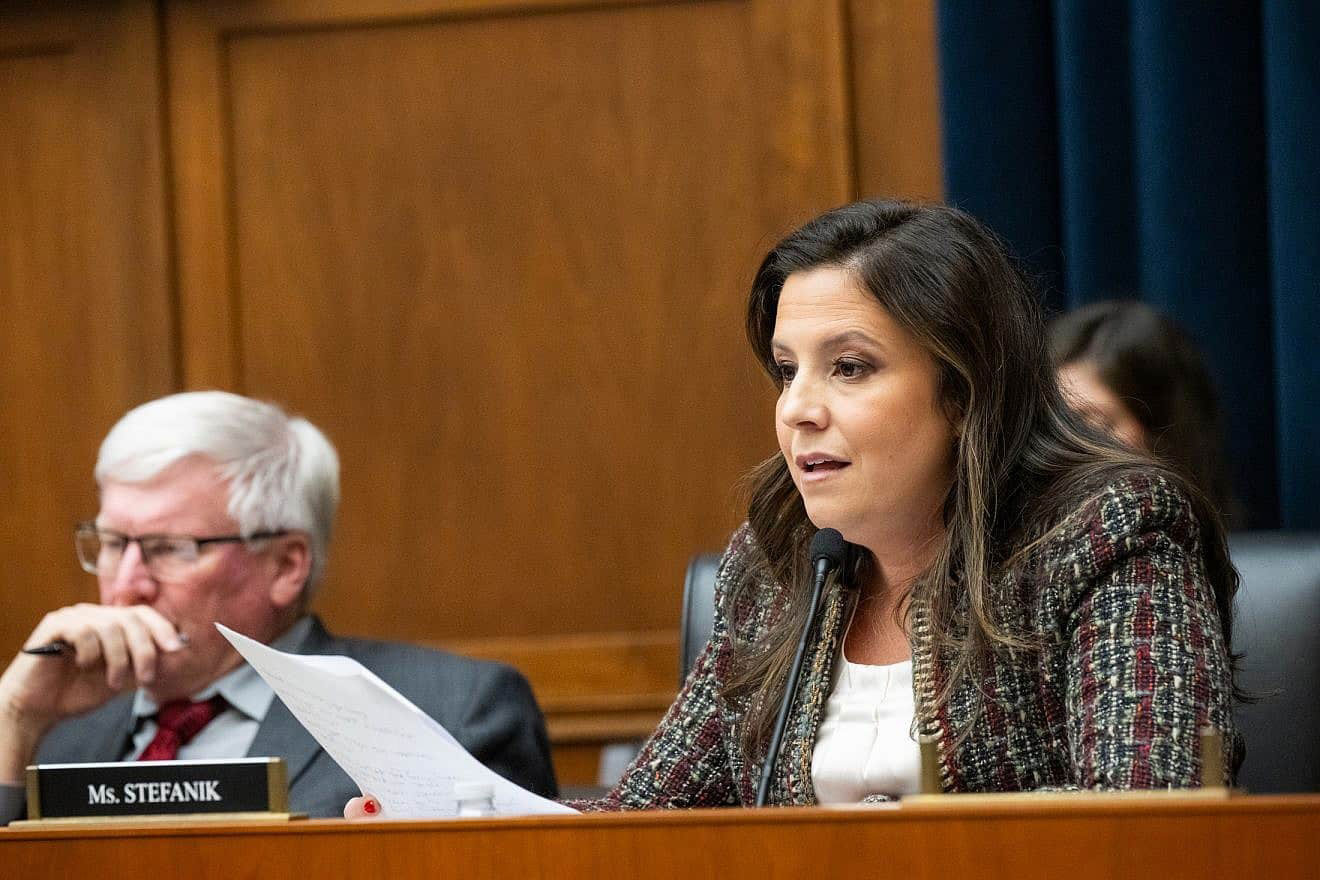(JTA) – While fellow Ivy League institutions landed in hot water over their handling of campus antisemitism since the Israel-Hamas war began six months ago, Princeton University has largely evaded the spotlight.
That changed this week, as the U.S. Department of Education opened a Title VI investigation into antisemitism allegations at the elite New Jersey private university based on a Jewish conservative activist’s complaint. The complainant cited reports of campus pro-Palestinian protesters chanting “Intifada” and “Brick by brick, wall by wall, apartheid has got to fall” a few weeks after Oct. 7.
A Princeton spokesperson told the student newspaper that it is “confident we are in full compliance with the requirements of Title VI.”
Princeton will now join six other Ivy League schools in having at least one Title VI investigation opened since the Oct. 7 Hamas attacks. They include Harvard University and the University of Pennsylvania, whose presidents resigned following criticism of their handling of tensions around the war and a December congressional hearing at which they both testified. An investigation can compel a university to make changes to protect its Jewish students.
Only one Ivy League school, Dartmouth College, has so far evaded an investigation; Education Department officials and others have praised it for what they say has been a positive handling of its campus climate around Israel. Education Secretary Miguel Cardona told the Jewish Telegraphic Agency this year that the school has “a culture and a climate on campus that is willing to engage in problem-solving when conflicts arise.”
In total, the department’s Office of Civil Rights has opened more than 90 Title VI “shared ancestry” investigations since Oct. 7, a significant portion of which relate to the war in some way.
Princeton was also not the only new name on the growing list: Last week, Lehigh University in Pennsylvania was also made the subject of a Title VI antisemitism investigation following a complaint filed by the pro-Israel group StandWithUs Center for Legal Justice. And Youngstown State University in Ohio is also subject to a new antisemitism investigation initiated by Zachary Marschall, editor of the conservative website Campus Reform who is one of the most prolific recent filers of Title VI complaints.
Marschall also filed the complaint that yielded the Princeton investigation, a fact that the university spokesperson noted to the student newspaper.
“Based on the complainant’s published description of the complaint, we know that he is not a member of the University community and that his complaint appears to be premised on chants at protests,” the spokesperson said.
Some of Princeton’s Jewish leaders also criticized the investigation, saying that they were not consulted by Marschall. They dispute his characterization of the school as a hotbed of antisemitism.
“My read on the campus climate at Princeton, however, is that such a climate of hostility has not taken over the campus in the way it has at other universities,” Rabbi Gil Steinlauf, director of the university’s Center for Jewish Life, told the student newspaper, the Daily Princetonian. “A majority of Jewish students have reported to me that they do not feel that Princeton is an antisemitic place.”
In October, Princeton was also the site of a rare apology issued by a pro-Israel group related to an accusation of antisemitism. The director of Alums for Campus Fairness, which hires message-laden trucks and pays for ad blitzes targeting universities the group believes haven’t protected Jewish students, quietly apologized to a Princeton dean for accusing her of enabling antisemitism. The dean had in fact already condemned Hamas in the days after Oct. 7.
According to the Daily Princetonian, the dean of the school of public and international affairs had attempted to push ACF director Avi Gordon to issue a public apology and retraction as well, calling his tactics “irresponsible.” Gordon did not do so.
Youngstown State’s investigation, according to Marschall, relates to a YouTube interview his staff conducted with the student head of the school’s Students for Justice in Palestine chapter. During the interview, the Campus Reform employee asked the student to condemn Hamas; she did not, adding, “Why should I condemn anything?”
A representative for that university did not immediately return a JTA request for comment. Based on a survey of all available documentation related to past Title VI antisemitism investigations, one mounted solely on the basis of a conservative media YouTube interview with a student would be unusual.
The University of Michigan, which had a Title VI complaint related to antisemitism opened against it in February, was the subject of a second one this week, as well, though its origins could not be determined by press time. A university spokesperson did not return a request for comment. A small number of schools have had multiple discrimination investigations opened against them at once.
A fourth complaint of unknown origin was also opened this week at the School District of Philadelphia, which declined to comment. Several large urban public school districts, including in New York, Chicago, Oakland and Montgomery County, Maryland, have had antisemitism-related investigations opened since Oct. 7.





